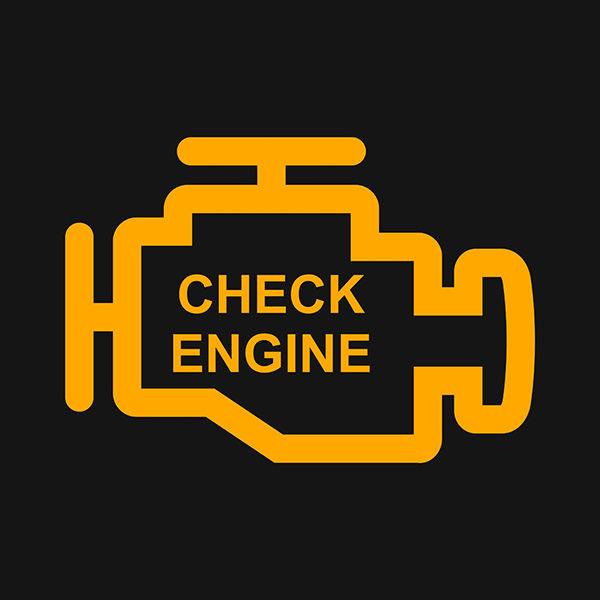
Seeing the check engine light come on is always a little unsettling, but when it starts flashing? That’s a much more urgent signal. Unlike a steady check engine light that typically indicates a non-critical issue, a flashing one often means your engine is experiencing a severe problem that can’t wait.
If your check engine light flashes intermittently (turning on and off while you drive), it’s your vehicle warning you that something needs immediate attention. Ignoring it could lead to costly engine damage or even complete failure. Understanding what causes this flashing behavior is the first step toward protecting your vehicle.
Why the Light Flashes Instead of Staying Steady
The engine control module (ECM) is designed to monitor your car’s performance in real time. A steady light is usually related to emissions problems or non-urgent malfunctions. Still, when the system detects a misfire that could harm the catalytic converter, it switches to a flashing signal.
Misfires are the most common cause of a flashing check engine light. A misfire occurs when fuel in one or more cylinders doesn’t ignite properly. This causes raw fuel to pass through the exhaust system, which can overheat and destroy the catalytic converter—a key component in reducing harmful emissions.
Most Likely Causes of Intermittent Misfiring
Several underlying issues can cause misfiring. Some of the most common include:
- Faulty spark plugs or ignition coils
- Clogged or malfunctioning fuel injectors
- Vacuum leaks affecting the air-fuel mixture
- Low fuel pressure from a weak fuel pump
- Wiring issues or problems with the ECM itself
Spark plugs and ignition components wear out over time, especially in vehicles with high mileage or that see a lot of stop-and-go driving. If one cylinder fails to fire intermittently, it will trigger the light to flash during those moments but stay off when things seem to return to normal.
Fuel System and Air Intake Troubles
Fuel delivery problems are another frequent cause. If a fuel injector is clogged or isn’t delivering the right amount of fuel, combustion can become irregular. This may happen only under specific driving conditions, such as when the engine is under load or during acceleration.
Air intake problems can also cause a lean mixture that leads to misfires. A dirty mass airflow sensor, throttle body buildup, or vacuum leak can upset the balance between air and fuel. When the system can’t compensate, the check engine light may flash to indicate the problem is escalating.
Sensor Failures and ECM Miscommunication
Modern vehicles rely on a network of sensors that communicate with the ECM. These include oxygen sensors, camshaft and crankshaft position sensors, and more. If one sensor sends inaccurate data, even intermittently, it can confuse the computer and cause poor engine performance or misfires.
Sometimes, the issue lies in the software or the connections themselves. Loose wiring or corroded connectors can result in inconsistent signal transmission, causing the light to flash intermittently during driving but not stay on permanently.
What to Do When the Light Flashes
If your check engine light starts flashing, especially while driving or accelerating, you should reduce your speed and avoid hard acceleration. In most cases, continuing to drive aggressively can worsen the problem and increase the risk of internal engine damage or catalytic converter failure.
Pull over safely if the engine feels rough or if performance drops. If the flashing continues for more than a few moments, or if it's accompanied by smoke, strange smells, or shaking, it’s best to stop driving and call for a tow.
Even if the light stops flashing and turns off, the underlying problem is likely still present. A diagnostic scan can reveal stored trouble codes, providing technicians with the necessary information to pinpoint the cause of the misfire or other failure.
When You Should Seek Help
Any flashing check engine light should be treated seriously. It may not mean your car is about to break down, but it does indicate that continuing to drive could damage expensive components. Acting quickly can prevent long-term consequences and keep your repair bill manageable.
Our trained technicians will not only read the codes but also inspect spark plugs, coils, fuel injectors, and key sensors. With the right equipment and experience, they can determine whether the fix is simple, like replacing a faulty plug, or more complex.
Get It Checked at Space Center Automotive of Clear Lake in Houston, TX
In a city like Houston, where traffic, heat, and long commutes put constant pressure on your engine, ignoring a flashing check engine light can quickly escalate into a major issue. Reliable vehicle performance depends on staying ahead of problems and acting on early warnings.
If your check engine light has been flashing, even briefly, visit Space Center Automotive of Clear Lake in Houston, TX. Our team will run a full diagnostic, explain what’s going on, and provide the repairs you need to get back on the road with confidence.